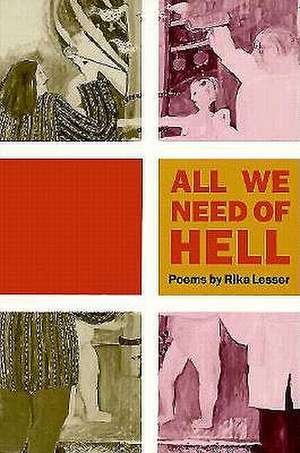All We Need of Hell: Clipper Studies in the Theatre; 4
Autor Rick Lesser, Rika Lesseren Limba Engleză Paperback – 31 mai 1995
The book begins with poems on suicide attempts, clinical depression and mania which will attract readers with a special interest in "poetic madness." But in the end the poet turns from death to a full engagement and participation in "normal life" and all that "it "entails.
In addition to the general poetry audience, this book will appeal to medical ethicists, psychiatrists, psychologists, counselors, and others needing insight into manic-depressive illnesses.
Preț: 95.69 lei
Preț vechi: 111.62 lei
-14% Nou
Puncte Express: 144
Preț estimativ în valută:
18.31€ • 19.25$ • 15.13£
18.31€ • 19.25$ • 15.13£
Carte indisponibilă temporar
Doresc să fiu notificat când acest titlu va fi disponibil:
Se trimite...
Preluare comenzi: 021 569.72.76
Specificații
ISBN-13: 9780929398921
ISBN-10: 0929398920
Pagini: 88
Dimensiuni: 153 x 228 x 8 mm
Greutate: 0.17 kg
Ediția:New.
Editura: University of North Texas Press
Seria Clipper Studies in the Theatre; 4
ISBN-10: 0929398920
Pagini: 88
Dimensiuni: 153 x 228 x 8 mm
Greutate: 0.17 kg
Ediția:New.
Editura: University of North Texas Press
Seria Clipper Studies in the Theatre; 4
Notă biografică
Textul de pe ultima copertă
Rika Lesser through-composes her books of poems; they are not albums but unities. They are meant to be read in one sitting and can be fearfully intense. In Etruscan Things she followed the circular map of the Etruscan heavens. In All We Need of Hell she seeks to escape the locked boxes of psychiatric wards and medical categorizations. When she succeeds - and she must - it is through art to life. These poems will inevitably be compared to those by other poets who have struggled with depressive illnesses. Rarely, however, does a poet address such topics as illness, mental illness, suicide, and death as singlemindedly as Lesser does here.
